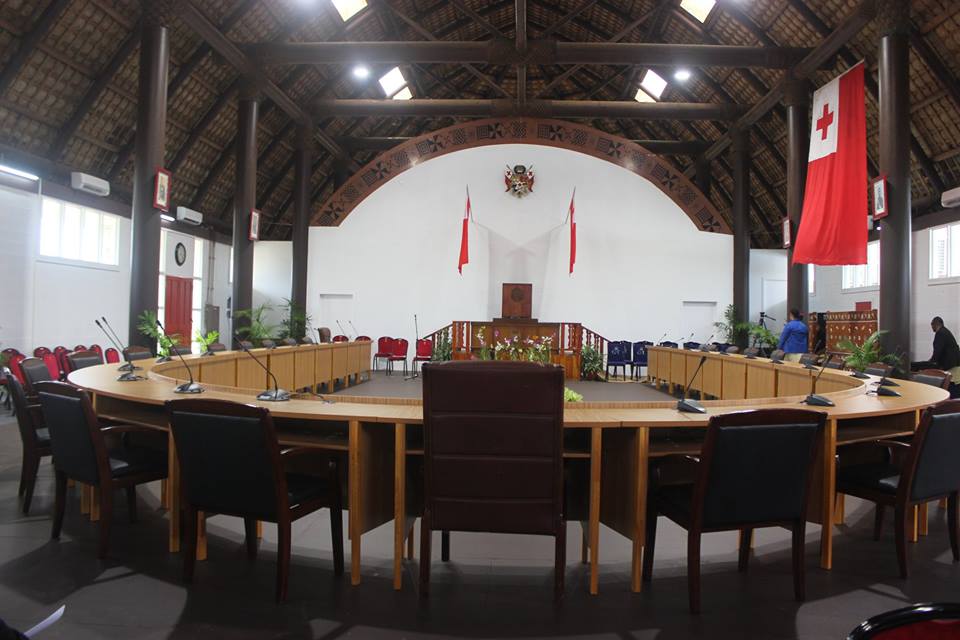EDITOR’S NOTE: An earlier version of this story said the number of MPs who signed the “Parliamentary Resolution” was 14. The correct number is 18. It also said it was Parliamentary Resolution circular number 58/A-2018. The correct resolution number was 60A/2018.
The names of Tongan MPs who signed the controversial circular letter that approved a pay rise dating back three years to 2018 can now be revealed.

A copy of the Parliament Resolution document number 60A/2018, seen by Kaniva News, which was apparently issued to solicit the MPs’ signatures was dated May 22, 2018.
The document appeared to be an A4 sheet folded in half. One half contained a list of four points describing the requirements which sought the MPs’ approval.
It was signed by the Chief Clerk Gloria Pole’o and it bears two different stamps of the Legislative Assembly.
It suggested that MPs, whose names were listed in a table on the other half of the document tick boxes with labels “loto ki ai” (agreed) or “’ikai loto” (disagree). More boxes were made available beside their respective names for their signatures and dates.
Eighteen MPs who signed the circular were:
Lord Tu’ilakepa
Semisi Kioa Lafu Sika
Pōhiva Tu’i’onetoa
Penisimani Fifita
Semisi Tauelangi Fakahau
Sione Vuna Fa’otusia
Akosita Lavulavu
Lord Tu’ivakano
Lord Vaha’i
Lord Tu’i’afitu
Lord Tu’iha’angana
Lord Nuku
Lord Fusitu’a
Tevita Lavemaau
Mo’ale Finau
Siaosi Ofa Ki Vahafolau Sovaleni
Samiu Kiuta Vaipulu
Vātau Hui
Only one MP who rejected the resolution, signed and ticked disagreed was Losaline Mā’asi.
The rest of the 27 MPs did not sign the document and left the boxes blank. No reason was recorded for why they did not sign.
This included:
Lord Fakafanua
Samuela ‘Akilisi Pōhiva
Mateni Tapueluelu
Saia Ma’u Piukala
Poasi Mataele Tei
Tevita Tu’i Uata
Lord Ma’afu
Veivosa of Life Taka
Secretive approach
Parliament previously told Kaniva News that using the circular to seek MPs’ approval and endorsement outside the Legislative Assembly was a long-standing communication procedure used by the Speaker’s office.
However, after Kaniva News leaked details of the pay hike to the public, it triggered an outrage with many calling it an old-fashioned way of communication that should not be used anymore on matters that required decisions to spend millions of dollars of taxpayers’ money.
Many called the circular “secretive” and said Parliament should no longer use such procedure.
The most recent revelation came after the king called for transparency on government’s spending.
His Majesty also called on Parliament to monitor and check government spending and ensure that the grassroots benefited from all government services and projects.
“Government is answerable to the people who elected them into Parliament,” the king said.
“Parliament needs to monitor how government uses taxpayers’ money in accordance to the law”.
He also asked why the government was operating and managing its Lulutai airlines in “secrecy”.
Court decision
The pay hike has been recently the focus of the Court of Appeal after MP Māteni Tapueluelu fought unsuccessfully to declare it unlawful at the Supreme Court.
The Court of Appeal was told that the resolution approving the pay rise was passed by way of circulars in breach of the Rules of Procedure of the Assembly and Clause 62 of the Constitution.
It was argued that there was no provision in the Rules for the use of circulars and that the resolutions should have been put formally to Parliament via motion by an MP so they could be debated.
MP Tapueluelu argued that as a result the resolutions were unlawful and of no legal effect.
The Speaker and the Legislative Assembly applied for a declaration that the Supreme Court had no jurisdiction in respect of the MP’s claim. They contended that the Court had no jurisdiction to inquire into the internal proceedings of the Assembly and that, to do so, would breach common law privileges of the Assembly.
It was further argued that Clause 90 of the Constitution permitted the Court to inquire into the internal proceedings of the Legislative Assembly only where the Constitution had been breached. It was also argued that Clause 62 of the Constitution had not been breached.
However, as Kaniva News reported on Monday, the Appeal Court released its decision in favour of the Speaker.
It said the Supreme Court had jurisdiction in all cases in law and equity arising under the Constitution and the laws of the Kingdom of Tonga.
There was no justifiable basis for the intervention of the Court. The Assembly was given wide powers under Clause 62(1) to make its own rules for the conduct of its business and the Speaker had been given the primary role of interpreting and applying the Rules whenever any question arose. His decisions were final and it was not for the Courts to function as a form of review.
“Given the constitutional importance of Parliamentary supremacy and the doctrine of the separation of powers, we are satisfied that leave to bring judicial review proceedings in this context should only be given where a compelling case is established to warrant the grant,” the Court was told.







